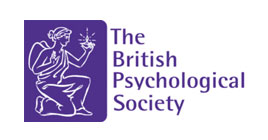Welcome to
Autism Assessment
Clinic
We specialise in diagnosis of Autism Spectrum Disorder (ASD).With access to over 100 mental health professionals, you can be rest assured to receive a specialised and an accurate ASD diagnosis soon after your appointment.
Call: +44 7958 592638
Email: info@autismassessment.org.uk







Characteristics of autism spectrum disorders

Sensory sensitivity
Many people with ASD experience difficulties and sensitivity to their senses. This includes under or over-sensitivity of sight, sound, smell, touch, and taste. For example, a person with ASD may find bright colours appealing, but they could also be overbearing. They may find certain music too loud or like listening to deafening music. They could enjoy wearing lots of perfume or find strong smells unbearable. They could also be affected by the touch of certain materials; they may find particular clothes uncomfortable or enjoy touching specific materials.
There are two other senses affected by ASD in addition to these five. The vestibular system plays a vital role in regulating balance. An individual who is sensitive to this may be more prone to accidents or falls.
A second sense is our sense of body awareness (‘proprioception’), which is our ability to know where and how to move our bodies. Someone with proprioception sensitivity may not know how much force to use to gradually open a door, unlike those without ASD. A clumsy or heavy-handed individual may appear this way, for example.

Passion for a particular subject
Special interests are common among people with ASD. Many things can be used as subjects, including dogs, dinosaurs, modes of transportation, art, stamps, TV shows, computers, dates in history, bus schedules, or numbers. There may be times when these special interests seem obsessive. People often talk about and collect things related to their interests, research a great deal on them, and collect things related to the topic. It is important to note that having such a focused interest is typical for people with autism spectrum disorders. Individuals with such fixed interests often find enjoyment or comfort in doing so. Hence, many people with ASD can channel their interests into the working world with support. A person who enjoys reading and numbers might work in a library, while a train enthusiast might drive trains.

Disabilities related to learning
Learning difficulties are common among people with autism spectrum disorders. This can affect different aspects of life, ranging from mild to severe.
This can affect how someone learns practical skills such as cleaning and cooking. As a result, a student may need additional support in school or college if they struggle academically.
Autism spectrum disorders are associated with several other diagnoses. ADHD, dyslexia, and dyspraxia are among them.

Routines and repetitions
The routines, conversations, and behaviours of someone with ASD may be repeated. Reading the same book or watching the same film is often associated with a particular interest.
The soothing effect of touching a specific fabric, or tapping their feet repeatedly, may soothe someone with a sensory sensitivity to touch. For example, a person with sight sensitivity may benefit from turning torches on and off or flapping their hands. Repeated activities can also help individuals with sensory sensitivity.
In addition to stress and anxiety, repetition is also influenced by these factors. Repetitive behaviours often deal with stress and anxiety in people with ASD.

Who We Work With
We work with professionals that have full credentials and experience in assessing ASD.
How to Refer
Simply call the above number and you shall be contacted for an initial FREE initial consultation and then you can book your appointment.
WHAT TO EXPECT AFTER YOU HAVE BEEN REFERRED
After you have been referred and you are happy with what you have been advised, simply book and pay for your appointment to go through the assessment.
– Doctor of Psychology
– HCPC Counselling Psychologist since 19/01/2012
– Autism Assessment: Over 150 cases assessed to date
– Child, Adolescent & Adult Psychologist- Cardiff University and Bond Solon Qualifications for Expert Witness Work Completed
– 29 years’ experience as a Counselling Psychologist in the UK working with Children, Adolescents and Adults
– Expert Witness Psychological Report Writing since 2007 – many reports completed
– Strong knowledge and qualifications in therapeutic interventions using systemic and CBT framework
– Highly experienced in adolescent psychological assessments such as depression, anxiety, self-harm, trauma, PTSD, abuse and social withdrawal
Navigating Autism Assessment in London: A Guide to Dr. Alireza Moafi's Expertise
Autism spectrum disorder (ASD) is a complex developmental condition that presents challenges in social interaction, communication, and behavior. Seeking a comprehensive assessment for ASD is crucial for individuals and families to understand their unique needs and to access the appropriate support and interventions. In London, one of the prominent figures in this field is Dr. Alireza Moafi, a seasoned HCPC Counselling Psychologist with a wealth of experience in autism assessment for children, adolescents, and adults.
Dr. Moafi's Approach to Autism Assessment
Dr. Moafi’s extensive experience, spanning over 28 years, has equipped him with a deep understanding of the nuances of ASD. His approach to assessment is thorough and empathetic, ensuring that each individual receives a personalized evaluation that considers their specific circumstances. With over 150 cases assessed to date, Dr. Moafi has developed a keen eye for the varied presentations of autism, making his assessments highly sought after by those in the community.
The Importance of Specialized Assessments
Autism assessments are not one-size-fits-all; they require a specialist who can navigate the complexities of the condition. Dr. Moafi’s qualifications from Cardiff University and Bond Solon for Expert Witness Work underscore his capability to provide detailed assessments that can be used for educational planning, therapeutic interventions, and legal proceedings. His expertise is not only beneficial for the individuals assessed but also serves as a valuable resource for professionals across the mental health and legal domains.
Collaboration with a Multidisciplinary Team
One of the strengths of Dr. Moafi’s practice is his access to a network of over 120 mental health professionals, including psychiatrists, psychologists, and counselors. This collaborative approach ensures that individuals undergoing assessment have access to a comprehensive range of expertise and support, tailored to their needs.
Training and Continuous Learning
Dr. Moafi’s commitment to his profession is evident in his continuous pursuit of training and education. His recent qualifications in ADOS-2, ADIR, and 3di training reflect his dedication to staying abreast of the latest methodologies in autism assessment. This commitment to learning ensures that his practice remains at the forefront of the field, offering the most current and effective assessment techniques.
For those seeking an autism assessment in London, Dr. Alireza Moafi represents a beacon of expertise and compassion. His professional journey reflects a profound dedication to understanding autism and supporting individuals and families affected by it. Whether for a child, adolescent, or adult, Dr. Moafi’s assessments provide a foundation for a better understanding of ASD and a pathway to a more supportive and accommodating environment.
For more information or to book an appointment with Dr. Moafi, interested parties can visit his website or contact his clinic directly. His work not only contributes to the well-being of his clients but also enriches the broader conversation about autism and the importance of specialized care.
Autism
treatment room
A sensory room is a room with a special design that provides a wide range of stimuli to help people develop and engage their senses. These can include lights, colors, sounds, sensory soft objects, odors in a safe environment that allow the person to use them to explore and interact without risk.
Access to over 120 mental health professionals.
Psychiatrists, Psychologists, Counsellors and more!
What you get at
autism assessment
Therapists have a minimum of 7 years experience, are accredited and insured to practice privately.
Therapists have met rigorous selection criteria and are vetted to ensure you receive the best support.
Not satisfied with your first consultation? Try a meeting with another therapist free of charge.
Our users are Happy & Healthy

“Dr Moafi is very nice with great patience to my son. She paid great attention to the information and she’s very professional.”
Theo James

“Before my daughter saw you, she told us that she had no intention in doing her exams as she was too depressed and since seeing you she wrote her exams and had 2 A’s and 2 B’s, thank you so much”
Emilia Munro

“It was comforting that you understood and helped my son in a caring and positive way ”
Branden Griffiths
we’re here to all your questions
How does Autism Spectrum Disorder work?
Autism Spectrum Disorder (ASD) last throughout a person’s life. Mild to severe ASD can also occur. A variety of manifestations and variations characterize spectrum disorders.
An individual with autism experiences life differently from a person without autism. They understand the world differently and relate to it in a particular way because of ASD, which affects their communication with others and how they relate to the world around them. The condition is unique to each autistic person, as well as its characteristics and experiences. In the UK alone, one in 100 people have autism spectrum disorder. Males have a higher chance of suffering from ASD than females.
What is the experience of being autistic like?
While every individual with ASD experiences life differently, there are some similarities. Individual experiences of ASD have been chronicled in several books. An example of such a book can be found here:
‘Reality to an autistic person is a confusing, interacting mass of events, people, places, sounds, and sights… Set routines, times, particular routes, and rituals help get order into an unbearably chaotic life. Trying to keep everything the same reduces some of the terrible fear.’ Autism: A Personal Account by Joliffe (1992).
Autistic savants: what are they?
Autistic savants are people who possess exceptional skills in a particular area. ASD affects about one out of ten people, whereas most are not savants. In addition to excellent mathematics, memory, art, and music skills, savants possess many other talents and abilities.
How does autism develop?
The causes of ASD are unknown, and it is not fully understood. According to several theories, genetics and prenatal factors may influence ASD onset.
Are there any resources available to help?
Several approaches, therapies, and interventions for autistic people can enable learning and development. For example, appropriate behaviour and independence can be reinforced through behavioural interventions. An example would be learning how to dress, cook, and learn social expectations. Behavioural interventions can also be effective in discouraging aggression and other inappropriate behaviours.
Counselling is beneficial to many people, including those with autism spectrum disorders. In this way, individuals can deal with life’s difficulties and issues.
Sensory and speech difficulties can also be addressed with different approaches.
People with Autism Spectrum Disorder can function independently in some situations, while others require ongoing support. There will be individual issues and problems for all people with ASD. A professional can offer support tailored to an individual based on the assessment results.
Three main dysfunctions
Autistic people struggle with three main areas. Social communication difficulties, social interaction difficulties, and social imagination. These difficulties make up the so-called ‘triad of impairments.
inability to proper social interaction
A person with ASD may have difficulty understanding specific social interactions. One’s ability to identify others’ emotional skills and to express one’s feelings can be difficult, for example, due to problems understanding social rules (such as giving appropriate personal space).
Communication difficulties in social situations
People living with ASD often face communication difficulties. Gestures and facial expressions are non-verbal communication methods that can be difficult to understand. Using sarcasm and differentiations in voice can also make verbal communication difficult to understand. Some can also experience language difficulties with ASD.
The inability to imagine socially
Social situations that require imagination can also be difficult for people with ASD. A person with this condition may have difficulty understanding abstract concepts, predicting what might happen next, preparing for change, understanding the idea of danger, using imaginative play, and coping in unfamiliar situations.
The critical point is that individual experiences ASD and its difficulties differently. The triad of impairments causes some people difficulty, whereas others do not.
Stigma and misunderstandings
Misconceptions about people with ASD include that everyone is a savant. A popular misconception about people with Autistic disorders is that they are savants due to films such as ‘Rain Man. April 2nd is Autism Awareness Day, which aims to raise awareness about it.


